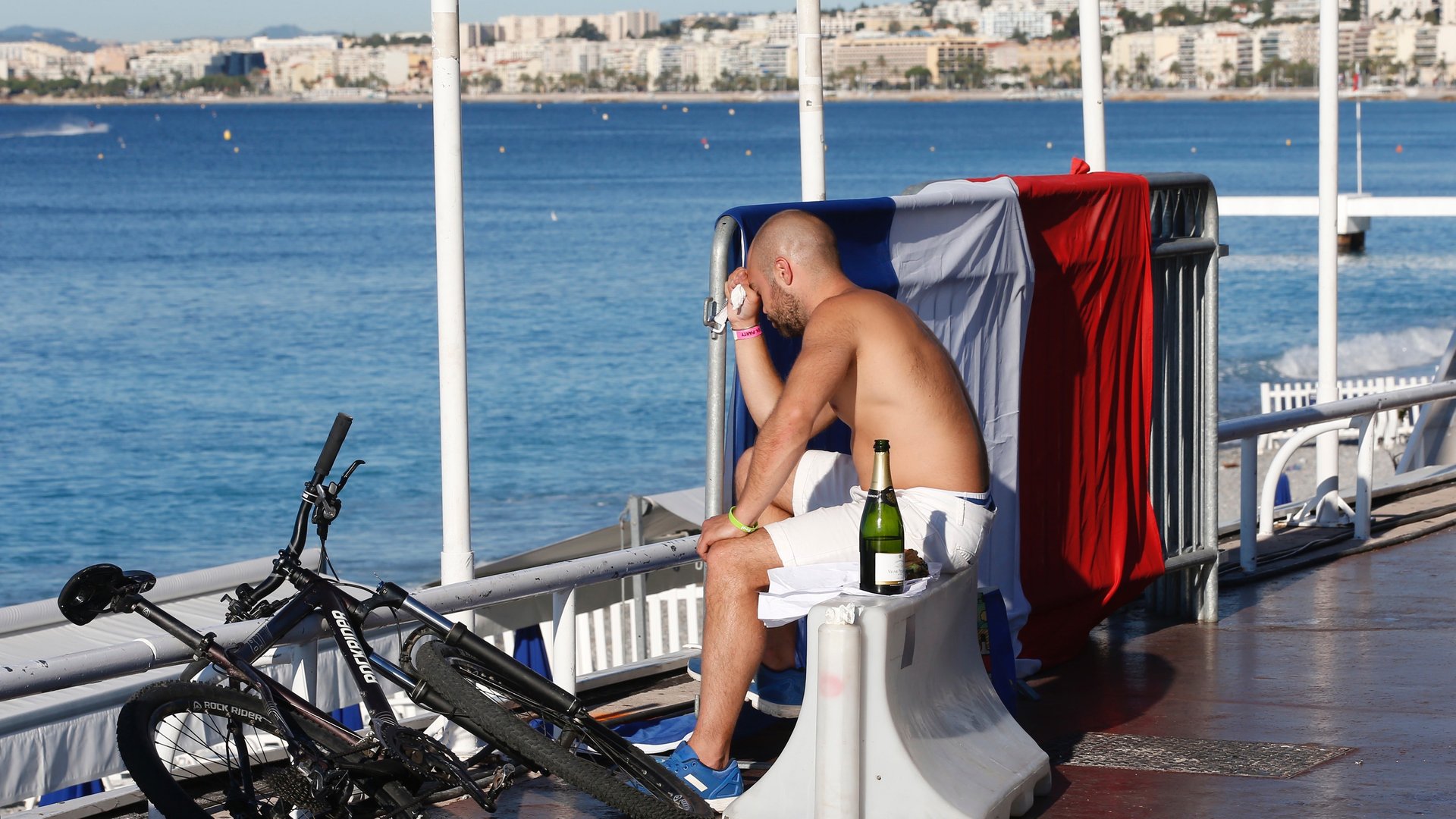Political scientists have isolated why disasters push us farther to the right
Over the past month, horrendous news events have become routine in the West. The Orlando shooting was followed by the unexpected chaos of Brexit and, as the world was still reeling, the US faced the deaths of Philando Castile and Alton Sterling, followed by the shooting of Dallas police officers. One week later, we’re struggling to come to terms with yet another attack in France, plus an attempted coup in Turkey.


Over the past month, horrendous news events have become routine in the West. The Orlando shooting was followed by the unexpected chaos of Brexit and, as the world was still reeling, the US faced the deaths of Philando Castile and Alton Sterling, followed by the shooting of Dallas police officers. One week later, we’re struggling to come to terms with yet another attack in France, plus an attempted coup in Turkey.
There’s talk of disaster fatigue, of the world falling apart, of struggling to come to terms with so many atrocities in such a short space of time. (This is especially true in wealthier Western nations, which have tended to enjoy some insulation from catastrophic world events.)
Though the full political implications of recent events will take months and years to unfold, political scientists who study the aftermath of disasters say that instinctive emotions—rather than any rational judgments—ultimately determine our reactions.
George Marcus, political scientist at Williams College who focuses on political psychology, has found that during and after a terrorist event, we intuitively ask two key questions:
The first question, “How much of a normative violation is taking place?,” leads to increased anger and reliance on existing convictions.
The second question, “How unusual and uncertain is this event?” determines our anxiety.
“We get increasingly anxious depending on how unusual [the event is],” says Marcus. The greater our anxiety, the less we rely on existing convictions, and the more we’re willing to compromise and look to new leaders for solutions.
Marcus has surveyed tens of thousands of people on their emotional response to political events over the years, and found that the anger/ anxiety response has shaped political reactions in France since the January 2015 Charlie Hebdo attacks.
Anxiety can push those on the left of the political spectrum away from their pre-existing beliefs and towards a more authoritarian approach on the right. But Marcus predicts that anger is the stronger emotion in determining right wing support: “The greater the anger, the greater the support for the far right, voting for [French far-right party] Front National.”
People who are angry respond by, “huddling together, acting in concert, demanding that others act in concert, and acting in a way that essentially says this is the only way we can deal with this,” says Marcus.
His findings tie in with the work of political scientists Leonie Huddy and Stanley Feldman, from Stony Brook University, who studied the public response in the US following the Sept. 11, 2001 terror attacks in New York. Anger, they found, lead to a desire for revenge, whereas anxiety made people more risk averse. “After the 9/11 terrorist attacks this meant that angry Americans were more interested in going to war and anxious people less so,” says Huddy.
If terror attacks become more common and predictable, anger could become an increasingly dominant response, rather than the anxiety fueled by uncertainty. “As people go through more and more of these experiences they get used to them,” says Marcus. “They’re likelier to get angrier and angrier.”